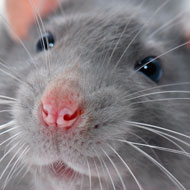
Proposals to review restrictions on the disclosure of information
A consultation launched by the Home Office will review legislation relating to the level of transparency surrounding scientific experiments on animals.
The Government is seeking views on changes to Section 24 of the Animals (Scientific Procedures) Act 1986 (ASPA).
Currently, the law states the Home Office cannot disclose information received under ASPA regarding animal experiments - even when the provider has no objection. A breach of this law can result in a maximum of two years in prison and a fine.
The Government believes the current requirements are now "out of step" with policies on openness and transparency, the consultation document states.
It is hoped the consultation will lead to the repeal of section 24 and amends to ASPA. This will include making it a criminal offence to maliciously disclose information about the use of animals in scientific research.
In addition, the Government proposes to prohibit the disclosure of information relating to people and place details and intellectual property.
Commenting on the move, Kennel Club secretary Caroline Kisko said the organisation "calls on the Government to amend Section 24 to facilitate the sharing of information on animal experiments which will promote openness and transparency in the industry, something that is of course paramount when animal welfare is involved.
"
Section 24 prevents the public from being openly informed about what is being done in animal experiments and the justification for these tests. "
The Kennel Club does accept the need to retain confidentiality clauses, however, that protect intellectual property as well as the health and safety of particular people and places involved in animal research."
Responses to the consultation must be received by June 13. For further information visit https://www.gov.uk/government/consultations/section-24-of-the-animals-scientific-procedures-act-1986



 The Greyhound Board of Great Britain has published new vaccination guidance, with all greyhounds registered from 1 January, 2027 required to have the L4 leptospirosis vaccination, rather than L2.
The Greyhound Board of Great Britain has published new vaccination guidance, with all greyhounds registered from 1 January, 2027 required to have the L4 leptospirosis vaccination, rather than L2.